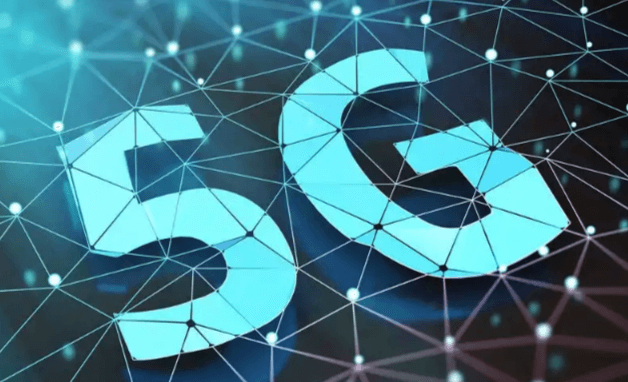What are the implications of the widespread adoption of 5G technology for businesses and consumers in the USA?

Introduction
The advent of 5G technology promises to revolutionize the way businesses operate and how consumers interact with technology in the USA. As the fifth generation of mobile networks, 5G offers unprecedented speed, lower latency, and the capacity to connect a multitude of devices simultaneously. This transformative technology is set to impact various sectors, enhancing productivity, enabling new business models, and improving the quality of life for consumers. This article delves into the wide-ranging implications of 5G adoption, exploring its potential benefits, challenges, and future outlook.
Understanding 5G Technology
5G, the latest iteration of mobile network technology, is characterized by its ability to deliver faster data speeds, ultra-low latency, and increased connectivity. Unlike its predecessors, 5G leverages high-frequency bands, known as millimeter waves, to achieve its remarkable performance. This enables the support of advanced applications such as augmented reality (AR), virtual reality (VR), and the Internet of Things (IoT), which require high data transfer rates and minimal delay.
Enhancing Connectivity and Speed
One of the most significant implications of 5G technology is the dramatic improvement in connectivity and speed. With download speeds potentially reaching up to 10 Gbps, 5G is set to make buffering and slow internet connections a thing of the past. For businesses, this means faster data transfers and more efficient cloud-based operations. Consumers, on the other hand, can enjoy seamless streaming, rapid downloads, and enhanced online experiences.
Transforming Business Operations
The adoption of 5G technology stands to transform business operations across various sectors. For instance, in manufacturing, 5G enables the use of smart factories where machines and devices communicate in real-time, leading to optimized production processes and reduced downtime. In retail, 5G can enhance inventory management through IoT devices, improve customer experiences with AR applications, and streamline supply chains.
Driving Innovation and New Business Models
5G technology is not just about faster speeds; it’s a catalyst for innovation and new business models. The low latency and high reliability of 5G networks facilitate the development of applications that were previously impractical. For example, autonomous vehicles require real-time data processing to navigate safely, a capability made possible by 5G. Similarly, telemedicine can benefit from high-quality video consultations and remote surgeries, improving healthcare accessibility.
Improving Consumer Experiences
For consumers, the widespread adoption of 5G technology promises enhanced experiences in various aspects of daily life. From ultra-high-definition video streaming and immersive gaming to smarter homes and cities, 5G will enable a range of applications that enrich entertainment, convenience, and security. Consumers can look forward to smart appliances that communicate seamlessly, real-time traffic updates, and personalized content delivery.
Expanding the Internet of Things (IoT)
5G technology is crucial for the expansion of the Internet of Things (IoT). With the ability to connect a vast number of devices simultaneously, 5G supports the proliferation of smart devices in homes, workplaces, and public spaces. This connectivity facilitates the collection and analysis of data, leading to smarter and more efficient systems. For businesses, IoT integration can mean better asset tracking, predictive maintenance, and enhanced customer insights.
Challenges and Considerations
While the benefits of 5G are substantial, there are also challenges and considerations to address. The rollout of 5G infrastructure requires significant investment and coordination among telecom providers, governments, and other stakeholders. Additionally, there are concerns about cybersecurity, as the increased number of connected devices creates more potential entry points for cyberattacks. Ensuring robust security measures and regulatory frameworks will be essential to mitigate these risks.
Impact on Healthcare Industry
The healthcare industry is poised to benefit significantly from 5G technology. Telemedicine, remote patient monitoring, and smart medical devices can all be enhanced with reliable, high-speed connectivity. 5G enables real-time transmission of large medical datasets, improving diagnostics and treatment plans. Moreover, augmented reality (AR) and virtual reality (VR) applications can provide training for medical professionals and assist in complex surgeries.
Revolutionizing the Entertainment Sector
The entertainment sector is set to experience a revolution with 5G technology. The ability to stream ultra-high-definition content without buffering, coupled with advancements in VR and AR, will offer immersive entertainment experiences. Gaming, in particular, will benefit from reduced latency, allowing for seamless multiplayer experiences and the development of new, interactive game formats.
Enhancing Education and Remote Learning
Education and remote learning stand to gain from the widespread adoption of 5G technology. High-speed internet access can facilitate the use of interactive and multimedia-rich educational content, making learning more engaging and effective. Virtual classrooms and remote collaboration tools can bridge the gap between educators and students, providing access to quality education regardless of geographical location.
Boosting the Economy
The economic implications of 5G technology are far-reaching. By enabling new industries and improving efficiencies across existing ones, 5G can drive economic growth. The technology’s ability to support smart cities, autonomous vehicles, and advanced manufacturing processes will create new job opportunities and stimulate innovation. Furthermore, the increased productivity and connectivity can lead to a more competitive business environment.
5G and Smart Cities
The development of smart cities is heavily reliant on 5G technology. With its capacity to support numerous connected devices, 5G enables the implementation of smart grids, traffic management systems, and public safety networks. These applications can lead to more efficient use of resources, reduced congestion, and enhanced quality of life for urban residents. For instance, smart lighting systems can adjust based on real-time data, and emergency response times can be improved through better communication networks.
Environmental Implications
The environmental implications of 5G technology are multifaceted. On one hand, 5G can contribute to energy efficiency through smart grids and IoT applications that optimize resource usage. On the other hand, the deployment of 5G infrastructure, including the construction of new base stations, may have environmental impacts. Balancing the benefits of 5G with sustainable practices will be crucial for minimizing its ecological footprint.
Legal and Regulatory Challenges
The rollout of 5G technology presents various legal and regulatory challenges. Issues such as spectrum allocation, network neutrality, and privacy concerns need to be addressed to ensure the smooth implementation of 5G networks. Regulatory bodies must work collaboratively with industry stakeholders to develop policies that promote innovation while protecting consumer interests.
Impact on Rural and Underserved Areas
5G technology has the potential to bridge the digital divide by providing high-speed internet access to rural and underserved areas. This can facilitate economic development, improve access to education and healthcare, and enhance quality of life. However, the deployment of 5G infrastructure in these areas poses challenges, including high costs and logistical difficulties. Strategic planning and investment will be necessary to ensure that the benefits of 5G are realized across all regions.
Enhancing Public Safety and Emergency Services
Public safety and emergency services can be significantly enhanced by 5G technology. The ability to transmit real-time data and video feeds can improve situational awareness and response times during emergencies. For instance, first responders can benefit from augmented reality applications that provide critical information on-the-go, and smart city infrastructure can enable more efficient disaster management.
Potential for Disruption in Traditional Industries
The widespread adoption of 5G technology has the potential to disrupt traditional industries. For example, the automotive industry will experience shifts with the rise of autonomous vehicles and connected car services. Similarly, the media and entertainment sector will undergo transformations with new content delivery methods and immersive experiences. Businesses in these industries must adapt to the changing landscape to remain competitive.
5G and Artificial Intelligence (AI)
The combination of 5G technology and artificial intelligence (AI) holds immense potential. The low latency and high data transfer rates of 5G networks enable the deployment of AI applications that require real-time processing and analysis. This synergy can drive advancements in areas such as autonomous systems, predictive analytics, and personalized services, enhancing both business operations and consumer experiences.
Cybersecurity Considerations
With the proliferation of connected devices enabled by 5G, cybersecurity becomes a critical concern. The increased number of entry points for potential cyberattacks necessitates robust security measures to protect sensitive data and ensure network integrity. Businesses and consumers must prioritize cybersecurity practices, and regulatory frameworks must evolve to address the unique challenges posed by 5G.
5G and Cloud Computing
5G technology is set to enhance cloud computing capabilities by providing faster and more reliable connectivity. This can lead to more efficient data storage and processing, enabling businesses to leverage cloud services for various applications. For consumers, improved cloud computing can mean seamless access to data and applications across devices, enhancing productivity and convenience.
Potential Health Concerns
The deployment of 5G technology has raised concerns about potential health impacts due to increased exposure to electromagnetic fields (EMFs). While current research indicates that 5G is safe within established guidelines, ongoing studies are essential to monitor long-term effects. Public awareness and transparent communication about health and safety standards will be important in addressing these concerns.
Economic Opportunities for Small and Medium Enterprises (SMEs)
Small and medium enterprises (SMEs) stand to benefit from the economic opportunities presented by 5G technology. The enhanced connectivity and access to advanced applications can help SMEs compete with larger corporations, innovate new products and services, and reach wider markets. Governments and industry bodies should support SMEs in adopting 5G technologies to foster economic growth and innovation.




